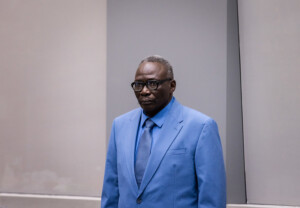Sudan military withdraws from negotiations, ‘civilians to form govt’
Chairman of the Sovereignty Council and the Commander-in-Chief of the Sudan Armed Forces (SAF) Gen Abdelfattah El Burhan, announced that the military will no longer participate in the current national negotiations. In a televised speech this evening, El Burhan announced the army’s withdrawal from the current dialogue facilitated by the AU-IGAD-UNITAMS Trilateral Mechanism.
 El Burhan announces withdrawal of armed forces from negotiations (Social media)
El Burhan announces withdrawal of armed forces from negotiations (Social media)
Chairman of the Sovereignty Council and the Commander-in-Chief of the Sudan Armed Forces (SAF) Gen Abdelfattah El Burhan, announced that the military will no longer participate in the current national negotiations. In a televised speech this evening, El Burhan announced the army’s withdrawal from the current dialogue facilitated by the AU-IGAD-UNITAMS Trilateral Mechanism.
He called on Sudan’s political and revolutionary forces, and other national groups “to engage in an immediate, serious dialogue, and to form a government of independent national competencies that will complete the tasks of the transitional period” *.
He stressed that the SAF will not be a vehicle for any political party to rule the country, and that it will be committed to implementing the outcomes of this dialogue. The army commander said that the Sovereignty Council will be dissolved after the formation of a new, independent government of technocrats.
A High Council of the Armed Forces will be formed by commanders from the SAF and the Rapid Support Forces (RSF) “to assume the supreme command of the regular forces and be responsible for security and defence tasks, and related responsibilities, provided that its tasks are completed in agreement with the government that is formed”.
El Burhan expressed his regret for “the victims from all sides”, and emphasised that “the military and security institutions will heed justice and assist in the investigations that lead to the clarification of facts and the bringing to justice of those involved in the loss of lives”.
The country is witnessing a crisis that threatens its unity and national cohesion, and jeopardizes “the completion of the desired democratic transition,” he said, and called for the removal of “existential threats to the Sudanese nation and to work on the transition toward democracy".
* The transitional period was originally a period of 39 months during which a civilian-led government would restore work on restoring democracy and rebuild the country following the ousting of the 30-year regime of dictator Omar Al Bashir (1989-2019).
The transitional period began in August 2019, after the Forces for Freedom and Change signed a joint agreement with the military junta to rule the country by a joint military-civilian Sovereignty Council, and would end with general elections. This was contested by a number of rebel movements during the peace negotiations in Juba, South Sudan, with the Sudanese government. The rebel leaders wanted the transitional period to re-start after the conclusion of the negotiations.
The same movements however supported the coup d’etat on October 25 last year, by which the military commanded by El Burhan and RSF Commander Mohamed 'Hemeti' Dagalo took over power again. The pro-democratic members of the Council of Ministers headed by PM Abdallah Hamdok resigned in November. Hamdok announced his resignation on January 2 this year.











 and then
and then